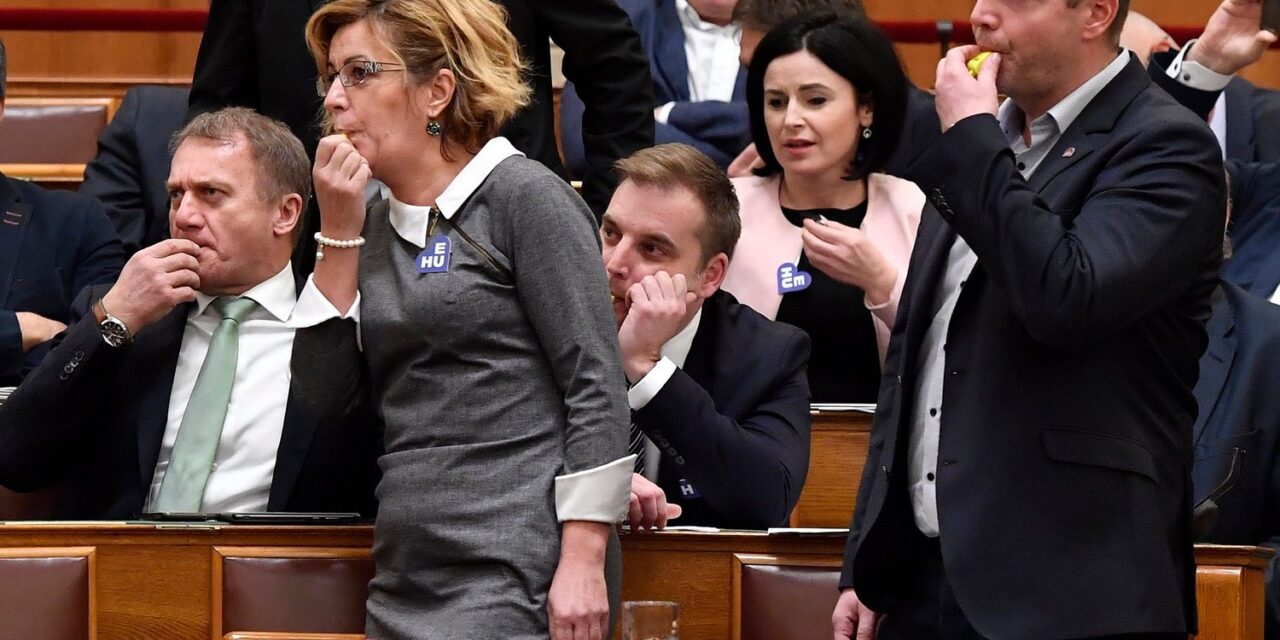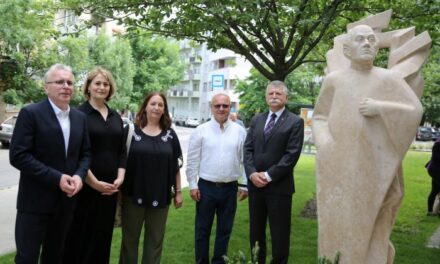The court declared the petition of the opposition representatives inadmissible and rejected it.
According to the European Court of Human Rights, the President of the Parliament rightly sanctioned the opposition representatives who violated the rules of the house, the Press Office of the Parliament told MTI.
The European Court of Human Rights declared inadmissible and rejected the petition of the opposition representatives, who were fined by the Speaker of the House in April 2017 due to their behavior violating the rules of the House.
The announcement recalls: on the day of the session of the Parliament on April 10, 2017, László Kövér reduced the honorarium of the applicants due to their behavior during the speech of another representative.
Ten opposition representatives presented A/4-sized boards, with which they expressed a message to the President of the Republic, on the one hand, and on the other hand, they wanted to attract the attention of the media, and in this way they wanted to protest against the proposal to amend the National Higher Education Act.
László Kövér fined István Tukacs, László Teleki, László Szakács, Sándor Szabó and István Józsa HUF 50,000, and Ildikó Bangóné Borbély, Anita Heringes, Lajos Korózs, Zoltán Gőgös and Imre Horváth 100,000 HUF.
The representatives appealed against the decision, but the immunity committee did not grant the request to annul the speaker's decisions, and the Parliament, in its decision dated May 30, 2017, maintained the speaker's decision.
The opposition representatives then appealed to the European Court of Human Rights, claiming that the sanctions imposed on them violated their right to freedom of expression guaranteed by Article 10 of the Convention, and complained that they had no effective legal remedy.
In justifying its now final decision, the court noted that the 2012 Act on the National Assembly provided for a remedy against the speaker's decision before the immunity committee, which was used by the petitioners, and the available procedural guarantees were adequate, as the court stated in Ikotity and previously established in his judgment in the case of his colleagues.
Regarding the justification of the imposed sanctions, the court noted that the use of visual devices is regulated by Article 38/A of the Act on the Parliament. , which stipulated that such devices may not be used during parliamentary sessions, unless the house committee has given permission for this.
In the present case, however, the applicants did not submit a permit for this purpose.
According to the court's view, it can be seen from the circumstances of the case and the submissions of the applicants that the representatives deliberately decided to hold a visual demonstration without permission, thus violating their duty to comply with the internal rules of the Parliament.
In the court's view, the applicants were expected to be aware of the legal consequences of their conduct, including the risk of being subject to sanctions.
The court ruled that it cannot be established that by sanctioning the Speaker of the House, he exercised his powers in a way that violated the right of the deputies to express their opinions.
In view of the above, the European Court of Human Rights - in its now published final decision - declared the requests inadmissible - the announcement concludes.
MTI
Cover image: Illustration / MTI/Zoltán Máthé













